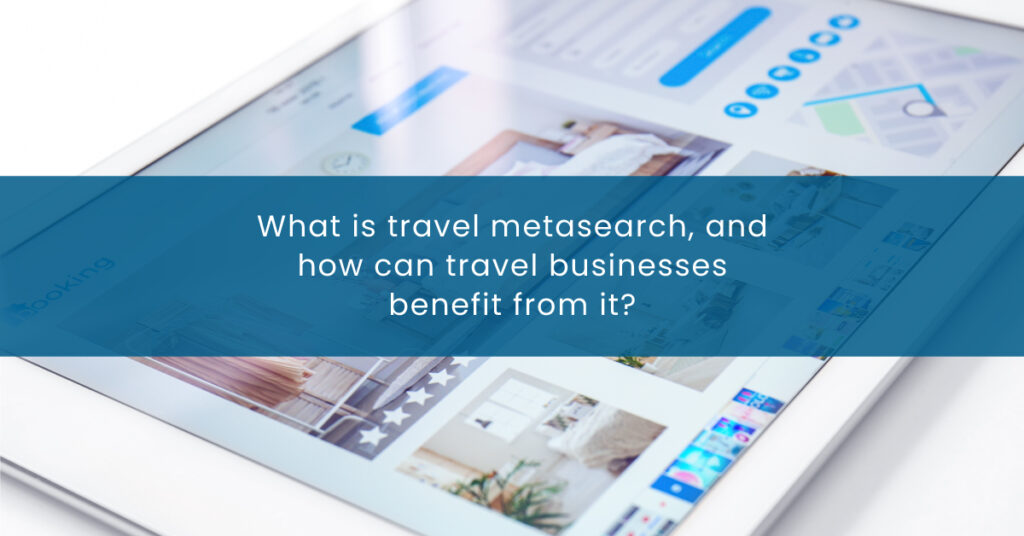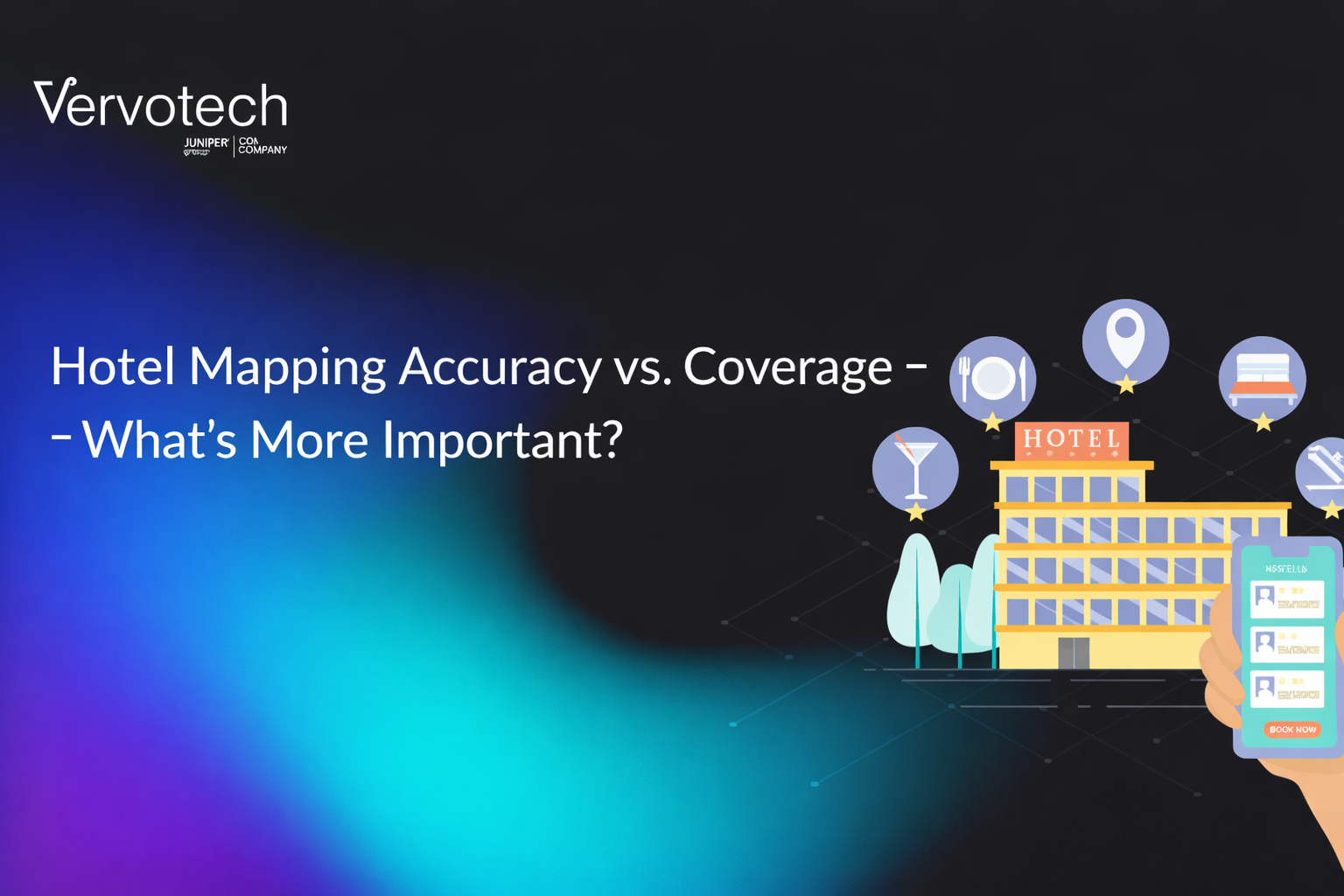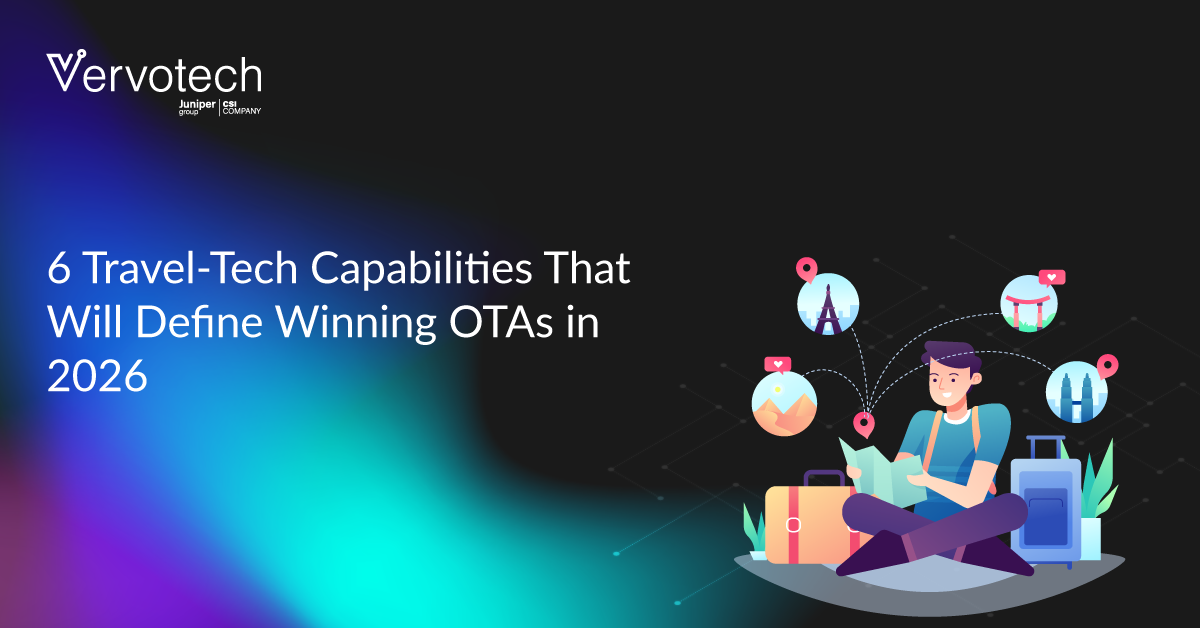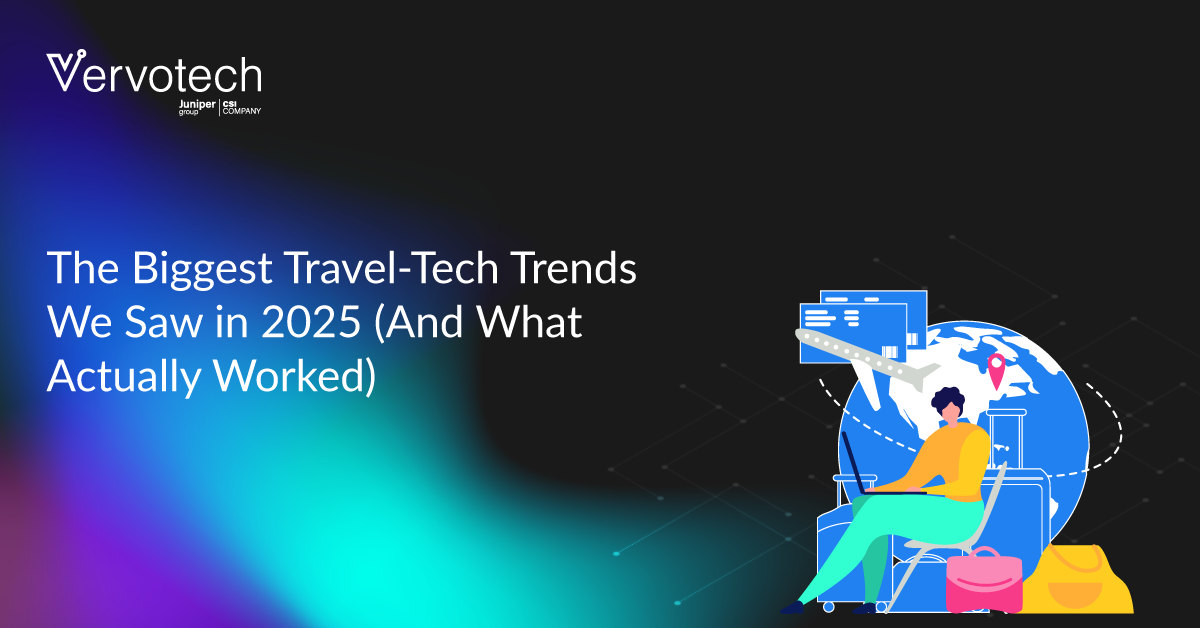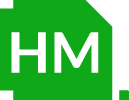Travel brands are always on the hunt for new ways to attract travelers and direct bookings. They use display ads, search engine ads, native videos, and social media to drive engagement. An ideal marketing strategy would be to use a good mix of all these marketing channels. However, in today’s travel marketing scene, travel metasearch is emerging as a big platform to market. Metasearch advertising generated an economic value worth 6 billion USD in the last decade. As many as 60% of independent hoteliers consider metasearch the most effective marketing channel.
Here in this article, we dissect travel metasearch for you, what it is, how your brand can benefit from it, and conclude by listing major engines.
What is a travel metasearch engine?
For travelers, metasearch is a platform where they can get an aggregated list of available rooms and their respective rates, saving them the trouble of visiting every travel website individually and checking for rates.
Travel businesses see metasearch as a platform to market their brands and bring direct or sales-qualified leads to their website. Therefore, it also works as an acquisition channel. But please note metasearch is not a booking engine. It is a platform that pulls room rate and availability data from multiple sources on the internet. The bidding metasearch engine works on conventional CPC (Cost per click). You or your marketing representative will bid for your brand, and every redirection to your website will have a cost similar to how Google AdWords works.
Also Read – Metasearch Engines: Potential and Underlying Challenges
How travel brands can benefit from metasearch engines

Metasearch can help travel brands in many ways. The brand can lift the conversion numbers without doing anything disruptive. Triptease report says “If your metasearch rates are accurate, your conversion rates can increase up to 300%”. It was about the ultimate outcome, but how do you activate it? As someone who’s just starting to use metasearch, what’s the ideal strategy to go ahead with? We are breaking it down for you in a three-tier approach, which will help you effectively get started with travel metasearch.
- Set the goals of the campaign
Implementation of metasearch certainly boosts direct booking numbers, yet to make it a success, you have to set realistic expectations and plan your future budgets accordingly. For instance, if you are 10% direct booking, with metasearch, you can aim around 13-14%, take 5-7x return on ad spend for metasearch. Then, start the campaign. Once your campaign matures, you will have a clearer picture of how to adjust the budget.
- Maintain rate parity
Travel metasearch engines optimize the rate to the user’s location and currency. Therefore, the odds of rate differentiation go higher, and if you are not keeping rate parity, you are giving your competition free winning edges. That’s why you must maintain rate parity across your distribution channels.
- Place rates strategically
Placements of rates can have significant impacts on conversion. Only the advertisement competitive rates on metasearch will not be enough. When potential travelers land on your page, you must ensure that the first rate they see matches your advertised rate. The pricing technique is also famous with the name BAR (Best available rate) – always show BAR first.
What are major travel metasearch engines, and who owns them?
If we talk in terms of crude numbers, there are five major metasearch engines, Google Hotel ads planner, Tripadvisor, Skyscanner, kayak, and Trivago. Let’s look at them objectively one at a time.
- Google Hotels
Google Hotels is arguably the market leader. The metasearch engine leverages google maps and Gmail to offer personalized recommendations to travelers. Google Hotels delivers travelers price tracking and deals directly to their inboxes.
- TripAdvisor
TripAdvisor is also a well-known travel metasearch engine. You should have your TripAdvisor account up and running as soon as your hotel starts accepting bookings. The existence of your hotel brand on Tripadvisor gives you wider reach and acceptability. TripAdvisor Metasearch offers travelers direct booking and allows comparison shopping.
- Skyscanner
Skyscanner is both a metasearch engine and travel agency. The booking tool is quite popular among gen-Z and millennials. Skyscanner offers its users’ destination research and booking travel products like flights, hotels, and cabs.
- Kayak
Kayak is also both an online travel agency (OTA) and a metasearch engine. Kayak is a part Booking.com group, the group wholly owns the platform. Therefore, it’s not easy for other hotels to get ad placement on this metasearch engine. Though, hotels can get into partnerships with airlines and place packaged offerings on Kayak to derive the most value out of the metasearch engine.
- Trivago
Trivago is a proper metasearch engine that fetches room rates and availability from different booking sites and shows it in one place. It has a revenue model like Google Hotels, booking sites have to pay a fee every time a potential customer clicks on a specific offering.
Recommended: What Is Hotel Upsell Software? And How To Choose One?
Ownership of metasearch engines matters a lot. Apart from Google Hotel and Tripadvisor the other three engines, Skyscanner, Trivago, and Kayak, are retailer-owned, so they send the major share of direct traffic to their own website. At the same time, media-owned travel meta-search engines are democratic and run transparent bidding systems.
Metasearch is a powerful medium to get quality direct traffic to your travel website. Ideally, go with media owned metasearch engine and use the implementation strategy we mentioned earlier in this article. You will be all set to benefit from travel metasearch engines.

